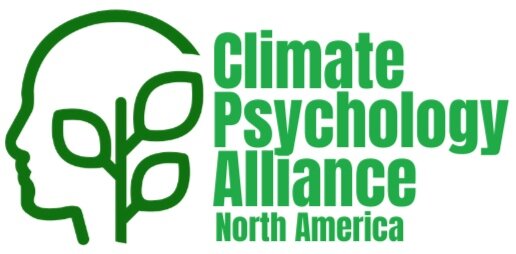CPA-NA is launching a core 4-part training series designed to equip mental health professionals with the necessary skills to effectively respond to the increasing frequency of disaster events, thereby offering crucial support to their clients and communities. This is Module One.
Climate change is not a problem for some future generations; it is affecting us now. We are the first generation of climate-informed mental health professionals. Climate change has extensive impacts on mental health, stemming from both direct environmental changes, such as natural disasters and depletion of environmental resources, and indirect effects, including anxiety and concern about future wellbeing. The U.S. Substance Abuse Mental Health Services Administration (SAMHSA) reports that climate-related disasters impact behavioral health such as anxiety, depression, and PTSD, in addition to disrupting services for those already receiving behavioral health care as well as those with new emergency needs. Consequently, there is an increasing necessity for disaster behavioral health crisis counselors to be well-versed in climate-related behavioral health issues.
Meet the Hosts:
Dr. Robin Cooper is a San Francisco psychiatrist who has had a private practice for over 40 years and is an Associate Clinical Professor of Medicine, UCSF, Dept of Psychiatry and Behavioral Science where she has worn many different hats over her career both as educator and supervisor with psychiatric residents, mental health trainees and medical students. Over the last decade or more, she has focused most of her efforts on both education and advocacy about climate change and the impacts on mental health. She is co-founder and President of Climate Psychiatry Alliance, a group dedicated to understanding, education and advocacy about the specific impact of climate change on mental health.
Rebecca Wener MA, MPH, LPCC is a licensed professional counselor candidate in Colorado and an employee of the Colorado Department of Public Health and the Environment on their Disaster Behavioral Health team. She has over a decade of public health experience, with three years working in disaster behavioral health response and recovery.
dix Moore-Broussard M.A.A.T., AThR., TCTSY-F. She is a polyvagal-Informed art therapist, a certified specialist in traumatic stress studies, neurodivergent studies, and Trauma Center Trauma Sensitive Yoga (TCSTY), B.A. In Fine Arts/Psychology. M.A.A.T. Masters of Art in Art Therapy.
She is a generational New Orleanian and moved to the Middle East in the 1980s (oil & gas industry) with her family. Deeply influenced by South Louisiana's climate challenges and extreme weather events, their work took a pivotal turn following the devastation of Hurricane Katrina. Profoundly impacted by the disaster and the city's slow recovery, dix began researching trauma, generational trauma, traumatic stress, racialized trauma, and disaster response with a specific focus on the disconnect of community and the importance of collective healing emphasizing cultural humility. This led dix to develop an innovative community-based approach to trauma/disaster recovery, aimed at fostering resilience and healing in the face of crisis through the arts and neuroscience. She is the Executive Director of The Neutral Ground Collective, Inc. www.tngcollective.com
Steve Crimando, MA, CTM, DRCC is the Director of Training for the Disaster and Terrorism Branch in the New Jersey Department of Human Services, Division of Mental Health and Addiction Services, and the principal of Behavioral Science Applications LLC, an international behavioral risk management consultancy. He is a 35-year veteran disaster and emergency behavioral health clinician, educator, and responder. He served as a Field Operations Supervisor FEMA’s mental health response to the 9/11 attacks in New York City and coordinated psychological services at the Anthrax Screening Center in Trenton, New Jersey, in addition to responding to many disasters and acts of mass violence in U.S. states, territories and tribal areas.
Steve serves on the disaster mental health committee for the Climate Psychology Alliance North America and is a member of Clinicians for Climate Action New Jersey. He is a member of the New Jersey Interagency Council on Climate Resilience, as well as serving as an instructor for the U.S. Department of State-Foreign Service Institute-Climate Diplomacy program and a consultant to the U.S. Substance Abuse Services Administration (SAMHSA) on the behavioral health aspects of climate change. He has worked for many years with the United Nations Office for Operational Support-Special Situations Unit, as well as other intergovernmental and non-governmental organizations.
REGISTER HERE
CE credits are available. Please purchase a ticket and CE credits in the country where you reside to be eligible.
Climate Psychology Alliance - North America is approved by the American Psychological Association to sponsor continuing education for psychologists. Climate Psychology Alliance - North America maintains responsibility for this program and its content.
Learning Objectives
Identify the top mental health impacts and expected emotional responses of climate disasters.
Recognize phases of disasters
Identify resiliency factors and vulnerabilities to mental health impacts
Recognize interconnection of disasters and climate change
Selected References
Heanoy, E. Brown, N. Impact Natural Disasters on Mental Health: Evidence and Implications, Healthcare 2024, 12(18), 1812
Morgenstein, J., Ursano, R., Ecological Disasters and Mental Health: Causes. Consequences and Interventions. Front. Psychiatry, 2020. Vol 11.
SAMHSA Disaster Technical Assistance Center Supplemental Research Bulletin Disaster Behavioral Health and Approaches to Community Response and Recovery. 2023. https://www.samhsa.gov/sites/default/files/dtac-disaster-behavioral-health-approaches-to-community-response-recovery.pdf

